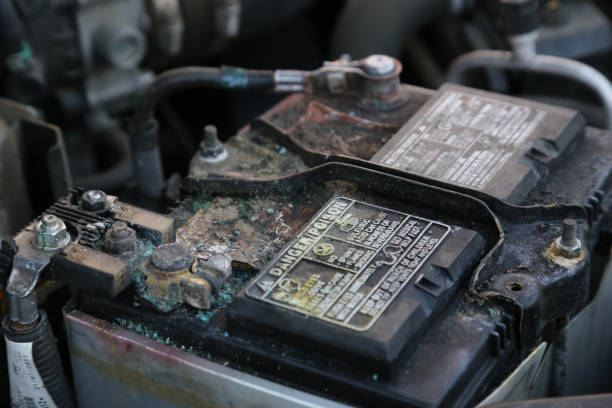When a battery gets damaged, it’s common practice for many people to simply dispose of it without much thought. However, this approach can have significant environmental consequences. In this article, we’ll explore why you should reconsider throwing away damaged batteries and instead opt to sell them. By doing so, not only can you potentially earn some extra cash, but you’ll also be contributing to a more sustainable future.
The Value in Damaged Batteries
Contrary to popular belief, damaged inverter batteries still hold value. Even if they no longer function as intended, the materials within them, such as lithium, cobalt, and nickel, can be recycled and repurposed. Recycling these materials not only conserves natural resources but also reduces the need for environmentally damaging mining operations.
Selling Damaged Batteries
Selling damaged batterie is a straightforward process that can be done through various channels. Online marketplaces, recycling centers, and specialized battery buyers are just a few options available. Before selling, it’s essential to assess the condition of the battery and determine its potential value.
Where to Sell Damaged Battery
There are several platforms where you can sell damaged batteries, including online auction sites like eBay, dedicated battery recycling companies, and local scrap yards. Each option has its advantages, so it’s worth exploring multiple avenues to find the best deal.
Benefits of Selling Damaged Batteries
Selling damaged batteries not only puts money back in your pocket but also helps reduce waste and protect the environment. By giving these batteries a second life through recycling, you’re diverting them from landfills and minimizing their negative impact on the planet. Additionally, recycling batteries conserves energy and reduces greenhouse gas emissions associated with manufacturing new products.
Safety Measures for Handling Damaged Batteries
It’s essential to handle damaged batteries with care to avoid accidents and injuries. When transporting or storing batteries, always keep them in a secure, non-conductive container to prevent short circuits or leaks. Wear protective gloves and eyewear when handling damaged batteries, and never attempt to disassemble them yourself.
Recycling vs. Selling Damaged Batteries
While recycling is an excellent option for disposing of batteries, selling them offers the added benefit of potential financial gain. By selling damaged batteries, you’re not only doing your part to protect the environment but also recouping some of the initial investment. However, it’s crucial to weigh the pros and cons of each method and choose the option that aligns best with your priorities and values.
The Future of Battery Disposal
As technology advances, so too does the way we dispose of batteries. Innovations in battery recycling processes are making it easier and more efficient to extract valuable materials from used batteries. Additionally, research into alternative battery chemistries and sustainable manufacturing practices is paving the way for a more environmentally friendly future.
When a battery gets damaged, it’s tempting to toss it in the trash and move on. However, by selling damaged batteries instead of throwing them away, you’re not only taking a proactive step towards reducing waste but also contributing to a cleaner, healthier planet. So, the next time you find yourself with a dead or damaged battery, think twice before discarding it—sell it and make a positive impact.


